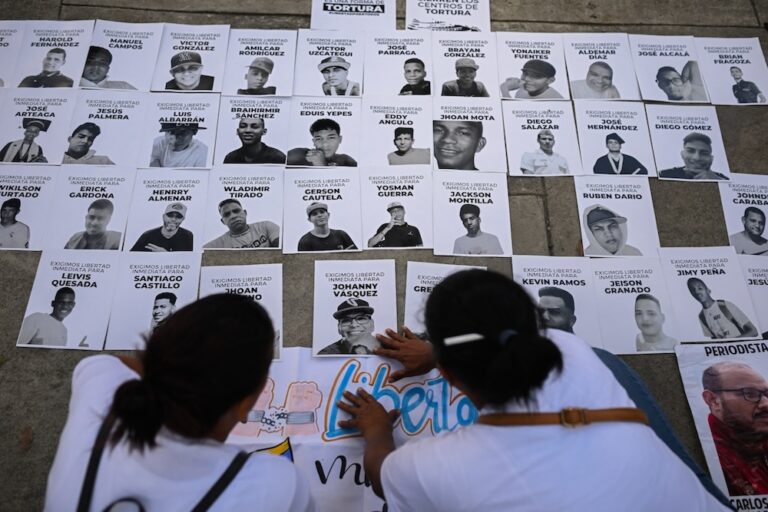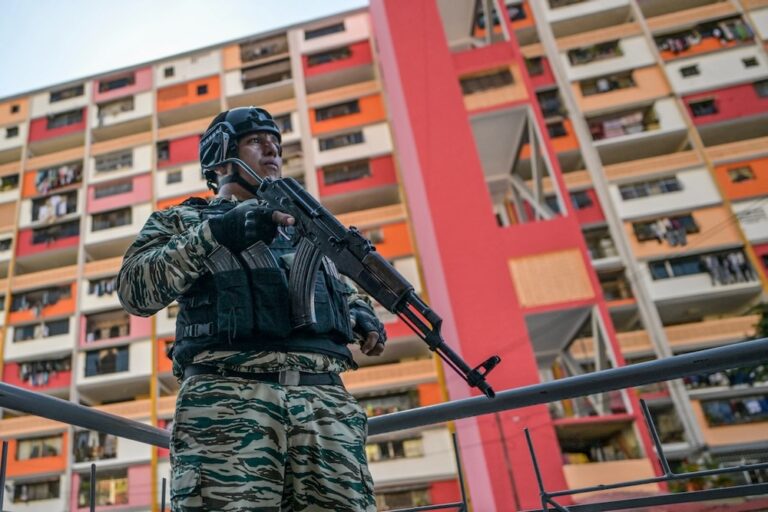Publication of "Sexto Poder" was banned after the magazine published photos depicting government officials as cabaret dancers.
(IAPA/IFEX) – Miami, Florida, August 23, 2011 – The Inter American Press Association (IAPA) today expressed concern at a court ruling in Venezuela banning the publication and distribution of the weekly news magazine Sexto Poder and called on officials there to immediately release the magazine’s editor, who was detained in Caracas last week.
The editor, Dinorah Girón, was arrested on August 21 based on a court order after Sexto Poder published a number of photos under the headline “The Powerful People of the Revolution”, in a satirical article depicting the heads of the Venezuelan Attorney General’s Office, the National Assembly, the Supreme Court and the National Electoral Council, among others, as cabaret dancers.
In addition to Girón, the court order was also issued against the weekly’s publisher, Leocenis García. The two were accused of “incitement to hatred”, a criminal offense under Venezuela’s Penal Code.
IAPA President Gonzalo Marroquín, president of the Guatemala City, Guatemala, newspaper Siglo 21, condemned the action taken against Sexto Poder, stating that “to impede the distribution of a news media outlet is an abuse of power that encroaches on the Venezuelan people’s right to information.” He urged the government to “restore full rights to the publication and immediately release its editor, and in doing so abide by international principles on freedom of expression, which stipulate that no one may be sent to prison for expressing a critical opinion.”
Marroquín added that the IAPA is concerned that this kind of harassment of independent journalists and media outlets in reprisal for their editorial stance could extend to the rest of the region.
The chairman of the IAPA’s Committee on Freedom of the Press and Information, Robert Rivard, editor of the San Antonio Express-News, Texas, said that the offense of “contempt”, which is still imposed in Venezuela, “belongs to the past and is far from the values established by the Inter-American Commission on Human Rights and the Inter-American Court of Human Rights, which deem that public officials should be tolerant of criticism and any conflicts arising in this realm must not be resolved through criminal cases.”
The Committee on Freedom of the Press and Information’s co-chairman, Claudio Paolillo, editor of the Montevideo, Uruguay, news weekly Búsqueda, added that “this reaction is a new step by the regime of President Hugo Chávez against free speech and freedom in general.” He added that freedom of expression can be said to exist “when harsh criticism, which can even be in bad taste, is tolerated by those in government, who are subject to public scrutiny by their own choice.”


